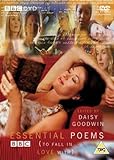Middletown: Interview by Crossey (Nov 2006)
Middletown: a place we have all been to
BY PHIL CROSSEY
p.crossey@newsletter. co.uk
ULSTER life in the 1960s, religious fundamentalism and a family tearing itself ap art. Perhaps unlikely subjects for a feature film which has been called the best Irish movie, northern or southern, to be made in recent years.
But Middletown is an insightful, and now critically-acclaimed, look at the Northern Irish condition with touches of gothic horror and melodrama. Written by Daragh Carville and directed by Brian Kirk, both from Armagh, it features Pride and Prejudice star and Matthew Macfadyen in the title role along with acast of notable actors. The plot centres around the Hunter family, and the dank, dreary backdrop of Middletown.
Gabriel (Matthew Macfadyen) is told at an early age that he has been "chosen by God" and is sent off to train as a minister. He returns home to Middletown many years later to find that drinking and gambling are rife, and that his brother, Jim, is haplessly caught up in the shenanigans.
Jim (Daniel Mays) is married to Caroline (Eva Birthistle), who works in the local bar and rejects Gabriel's attempts to bring thepair back to religion. The penniless couple are expecting their first child, struggling to build their own home and trying to survive in a world were money, rather than spiritual guidance, is what they need.
Meanwhile, Jim and Gabriel's father Bill (Gerald McSorley) is attempting torun the family's failing business while he battles with ill health and an impending sense of his mortality, Middletown is about the new minister's battle with sin and how he must face his own family on the front line. "It felt like a western," Matthew Macfadyen said.
As the stoic main character, one who keeps his emotions to himself, Gabriel Hunter not an usual role for the star. Buttheideaofa minister from Northern Ireland, one so out of touch with the real world, was something he approached with gusto.
"I didn't have any preconceived ideas, and I didn't know about the Free Presbyterian thing," Matthew said. He relished playing a fundamental preacher and, with the perfect accent, he has struck a chord with Ulster audiences. "People were saying I sounded just like Ian Paisley but I didn't know, I didn't base it on him."
Getting the accent right was challenging for Matthew, and he worked hard on an idiosyncratic Northern Ireland tone. "It's different from a Belfast accent, that Ballymena / Ulster-Scots twang," he said. "It was driving me insane at the start, and there was a point where I thought 'this is going to be a disaster', but then it all clicked."
With his voice sorted, Matthew focused on portraying Gabriel in away that didn't descend into the stereotypical cinematic preacher.
"It was an exciting challenge to capture the character, and the journey he goes on, withoutbecominghysterical,"hesaid. "It's much more interesting trying to keep the lid on than letting it all come out." While his great grandfather was a prominent member of the Welsh church, there were no immediate family reference points for Matthew to draw on. Onscreen, Gabriel may be dark and foreboding, but Matthew said there was good in him.
"I found him quite sympathetic, he's an innocent a baby really: he has no social skills, he doesn't know how to cope with his brother's wife or his father, but he adores his family,"he said. "Coming back to take over the ministry in the town was a huge thing for him, it was what he was put on this earth to do, but he realises that his dad and his brother are the most evil men in the village. That's a reflection on him and he can't deal with it."
Gabriel's mission to cleanup the town begins with his own family, and he turns to the Bible for guidance, setting his unshakeable moral compass from his inbuilt, and unworldly, sense of right and wrong.
"There's no debate, no black and white; you'll either be saved or you'll burn in hell," he said.
"It's a fundamental belief. It's deranged, but it's a great security for many people." For writer Daragh Carville, despite the obvious signs, the film isn't just about any individual religion: "I don't think it's necessarily about Christianity as such, I think it's about fundamentalism - a fanatical faith that blinds one to the actual complexity of human experience," he said.
"I certainly didn't want to make a point about Northern Irish Protestantism; it's a bigger story than that."
"It could be Protestant, it couldbe Catholic, it could be Islamic or whatever. It's about any kind of fanaticism, any kind of ideology that is life-denying."
But Middletown is unmistakably Northern Irish, in setting and in content. Shot on location over five weeks last year in Glaslough and in the Ulster Folk and Transport Museum, the fictional Middletown has areal presence onscreen.
"The two key themes are religion and violence and the connection between them" Daragh said.
"Those are inescapable ideas when you grow up in Northern Ireland. They're part of what shapes you."
The film warns against taking a simplistic, dogmatic, view to complex human problems. "It's a controversial mess age," Daragh said.
"I'm not saying Christianity is wrong but it is a cautionary tale about how a black- and-white ideological world view can be dangerous.
"I'm not religious, I was brought up a Catholic but I'm not practising, but that doesn't mean I'm anti-religion, the likes of Martin Luther King and Gandhi have done great things in the name of religion.
"It would be lazy to simply say all religion is bad."
Middletown opens in cinemas across Northern Ireland today.
_________________
- Login to post comments
- 18318 reads






